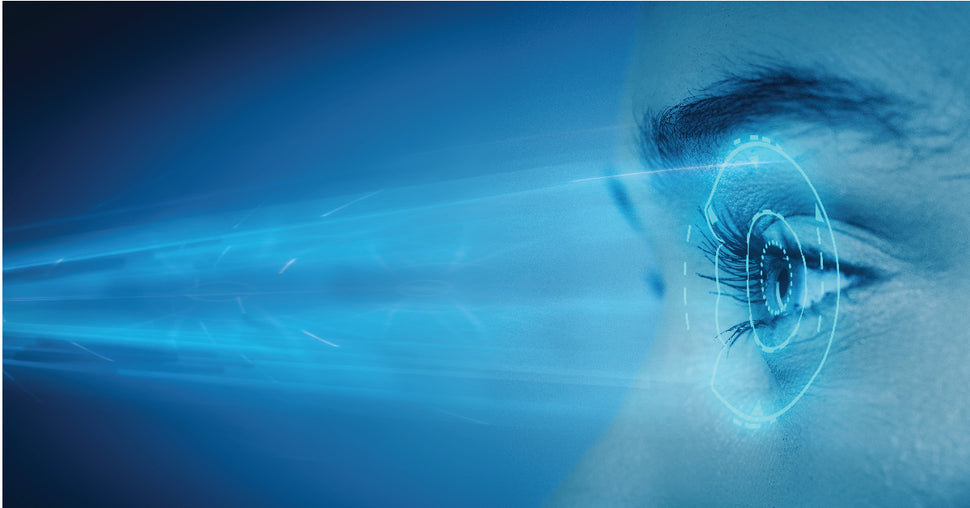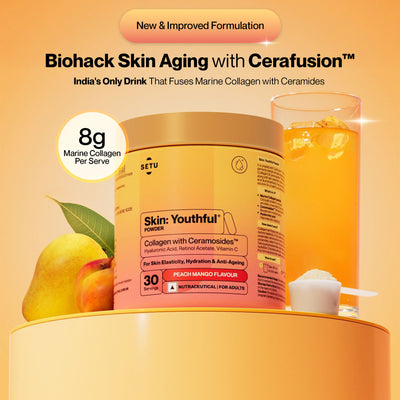From The Expert: Enlightening Facts About Blue Light Effect On Your Eyes
19 Jul 2020
This is the age of technology and we are surrounded by it. From employment to entertainment, everything demands us to sit in front of a digital screen and expose our eyes to the blue light emitted by digital devices.
I’m sure most of you must’ve come across the term ‘blue light’ and some of you may have even read about it, but do you really know what is blue light and how exactly it can affect your eyes? Here I tell you everything you need to know about it – the beneficial effects, the bad effects, and ways to protect your eyes from blue light.
The Fundamental Properties Of Blue Light
Blue light lies on one end of the visible light spectrum, or what we call the VIBGYOR.
Its short wavelength gives it high energy and it can be divided into two types based on its energy properties. Beneficial blue light is located at the range of 465-495nm on the visible light spectrum and is blue-turquoise in color. Harmful blue light ranges between 415-455nm on the visible light spectrum and is blue-violet in color.
Blue light is very close to the ultraviolet rays in the light spectrum. Just like UV radiation, blue light too has its share of benefits and drawbacks.
Parts of our eyes – cornea and the lens – have the ability to block all the UV lights, but they cannot do the same with blue light. Our eyes allow almost 100% of blue light to pass through them, and most of the time result in damage to the eyes.
Sources Of Blue Light:
Sunlight is the biggest source of blue light we are exposed to.
Mobile phones and computers come right after the sun as a big source of blue light due to the long hours spent on these devices.
LED and halogen lights used in offices and homes to brighten up the place are a rich blue light source.
Fluorescent light bulbs and flat-screen LED TVs are also sources of blue light.

Harmful Effects Of Blue Light
The harmful blue light (415-455nm) is close to the ultraviolet spectrum (400nm-10nm) and shows a lot of similarities to the UV light. Like UV light it too has a high frequency, shorter wavelength, and carries high energy. These properties of blue light contribute to the damage they cause to our eyes.
Digital Eye Strain: Harmful blue light emitted from computer screens and mobile phones result in eye fatigue, dryness, and difficulty in focusing which are also the symptoms of a condition known as computer vision syndrome.
Macular Degeneration: As blue light does not get blocked by the cornea and the lens, it reaches the retina easily. The high energy of the blue light damages the retinal cells leading to retinal degeneration which causes central vision loss. Without the central vision, one will be unable to read, drive, or even recognize people or objects.
Cataracts: Along with UV light the harmful blue light also speeds up the development of cataract.
Disrupted Sleep Cycle: Too much exposure to blue light at night causes loss of sleep and an overall disturbed sleeping pattern.
Benefits Of Blue Light
The beneficial blue light spectrum can have many advantages in our daily lives like:
Wakefulness: Blue light contributes to the circadian rhythm or the sleep cycle. Blue light exposure in the day keeps the mind alert and wakeful.
Elevates The Mood: A lesser-known fact about blue light is that it can elevate the mood. Blue light therapy is used in people with Seasonal Affective Disorder (SAD) or winter depression.
Development Of The Eyes And Vision In Children: Children need an adequate amount of exposure to blue light for the proper development of their eyes. Lack of exposure may lead to nearsightedness in children.

Protection From Blue Light
- Due to our current lifestyle choices, we cannot completely cut blue light from our daily routine. However, we can reduce our exposure to the harmful blue light. Here are a few ways with which you can do it:
- Use the blue filter setting on our phones and laptops.
- Wear computer vision glasses that have blue light filters.
- Replace all fluorescent light bulbs with softer yellow light bulbs.
- After cataract surgery, opt for an intraocular lens with high UV absorption.
- Reduce unnecessary screen time.
- Avoid using mobile phones or laptops at night.
Lastly, the most essential step in taking care of and ensuring good health of your eyes is maintaining a healthy diet. Include rich sources of lutein and zeaxanthin in your diet as these nutrients help strengthen the eyes from within. They are abundantly found in dark green leafy vegetables, carrots, pumpkin, etc.
For those who cannot maintain a diet, can opt for dietary supplements rich in lutein and zeaxanthin. Such supplements are easily available in the market and are quite effective. However, I recommend consulting a professional before beginning any supplement regime, especially if you have any health condition.

Authored by Dr. Arjun Gokani (Opthamologist)
MS (Ophthal), FICO (UK), MRCSEd (Edinburgh), FMRF (Glaucoma)
Trained in Glaucoma and Cataract Sankara Nethralaya, Chennai.
Skin: Renew - Glutathione - Orange Flavour
- ₹1,696
- ₹1,696
-
₹2,600 - ( 34% OFF)
Categories
- Choosing a selection results in a full page refresh.
- Press the space key then arrow keys to make a selection.
this is the sidecart











